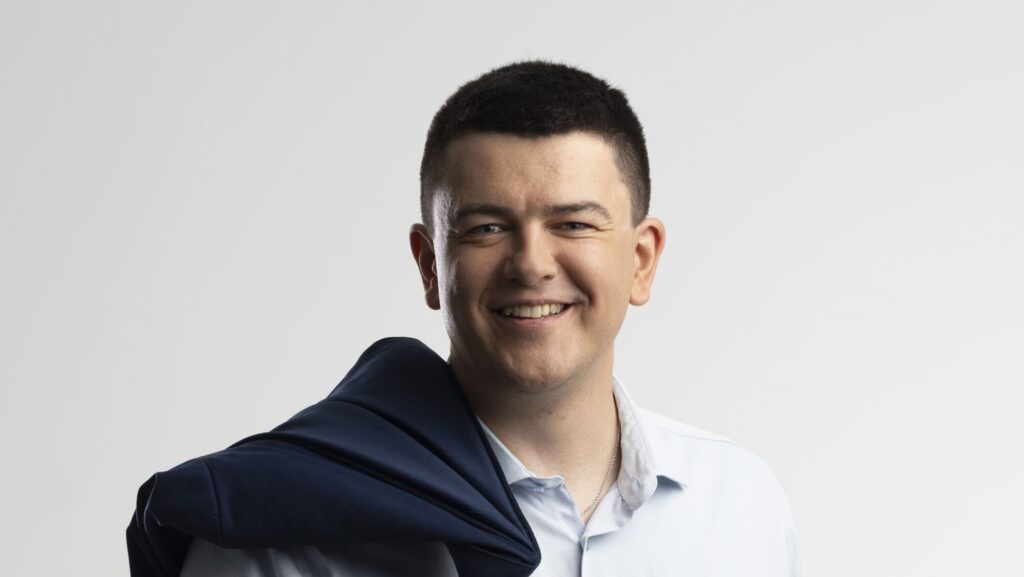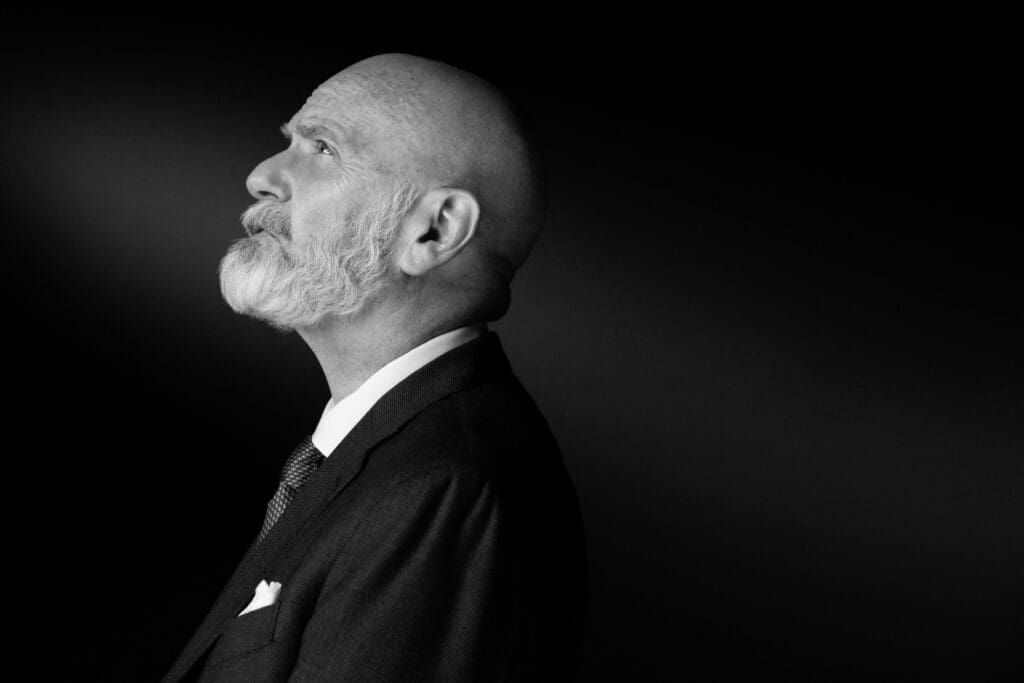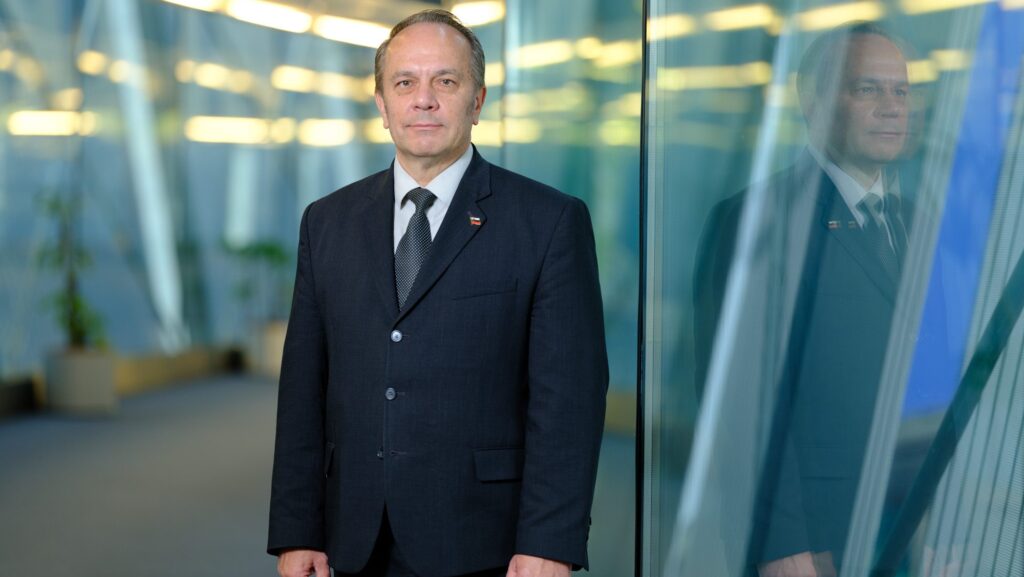Beatrix von Storch is the deputy leader of the Alternative for Germany (AfD) conservative opposition party in Germany. She has been a member of the Bundestag since 2017 and has served previously as a member of the European Parliament for three years. She studied in Heidelberg and Lausanne and worked as a banker and lawyer in her previous career. Together with her husband Sven von Storch she founded multiple conservative associations, such as the Initiative for the Protection of Christians, and the Initiative for the Protection of the Family. She has been described as a social conservative and has supported Brexit and opposed same-sex marriage in Germany.
Conservative parties seem to be on the rise in Europe. Have progressive politics disillusioned the voters? What is the cause of that turn towards conservatism?
The rise of conservative parties is a fact; those who do not see it are blind. This trend is not limited to Europe, but to the World, including the United States and Brazil. I know that’s still an ongoing fight there. But I think, yes, we can see this because people realize that this kind of woke, global movement, which is fueled by Marxism and international money, is failing to fulfill the fundamental needs of the people. This is why these societies are just breaking apart and people realize that a shift needs to happen. We have to change politics in a fundamental way. We have to go back to the national state and to national democracies. We have to strengthen our countries and to focus on our national interests. Every country has to do that for itself. We have to stick to certain values, which are our values. We are not founded on Wokeism or Marxism but on the family, and Christian values. Many have given up on those values; it meant social and economic decline. This is to the disadvantage of the people. We are losing our communities. We’re losing our wealth. This is not good for anybody.
The AfD wants to be a conservative party; does it ally itself consciously with other conservatives in the European landscape, in Italy for example, or in Sweden? Is the AfD working on outreach?
Yes! In the European Parliament we are members of the ID [Identity and Democracy] group, and formerly of the EFDD. I was personally a member of the European Parliament back in 2017 and I was the first member of the ECR Group along with the British Conservatives. And later on I joined the EFDD Group of Nigel Farage and my colleagues. Nowadays, there are nine of them in the European Parliament. They are joined by conservatives from Italy and Austria, for example. So yes, we do work together with them and everyone knows that for the next legislation in Brussels, the European conservatives overall will have a large group.
The political life in Germany is turbulent at the moment. A new small party was recently founded, ‘Bündnis Deutschland.’ The party wants to be classically conservative and has already attracted some AfD politicians. Does this new party truly fill a gap or does it split up tenuous votes and lure them away from the AfD? What is your take on this?
My answer in short: No one is talking about it. It was a headline for one day. I don’t expect anything to come out of it. We have got a conservative party which is called AfD. That is no surprise for you. This new movement is a dead end. We have had so many parties on the conservative right. Some people are not convinced by the AfD and are leaving the party to start a new one. This one was not started by someone from the AfD, it was just started by some other conservatives who are not willing to join the AfD. That’s their problem. But this new party is a stillbirth, it will not succeed. And nobody cares. It was in the media for one day—that was the end of it.
What is the common denominator of all those conservative forces in the framework of Europe?
This is an ongoing process. And there are, of course, different approaches. The German parties are putting a lot of pressure on other groups in the European Parliament not working together with the AfD. It is therefore difficult for us to have a say. But it’s definitely the goal to work together with all those who share our values and who are on the side of traditional marriage and family and against the global woke movement. What we combat are all those wanting to destroy our national sovereignty, the nation-state, and democracy. Every democracy needs a strong nation-state. My hope is that conservatives can form a powerful big group in the end.
Many spectators are skeptical of the European Parliament and somewhat in the dark about its workings. Since you’ve been a member, you have first-hand experience of it. Was the work there frustrating or rewarding?
Well, I think the most frustrating thing is to know that you’re sitting in a parliament, which is not really a parliament, because what is going on in the European Union is not a democracy on the European level. First, when it comes to Germany, we’ve got 96 members in the European Parliament out of 705. So the German people are voting only a small part of all those members in the European Parliament. And that means that if the decisions would be taken only by the European Parliament, it would be a majority of people, of members of the European Parliament who are not voted in by the German people. So it’s a majority of French and Spanish and Italians and all other countries who are overruling the German members of the parliament. That means the German people are governed by a parliament which is not voted by them. That is a fundamental problem concerning democracy.
Then there is a general lack of communication, a lack of public debate. We do not have a public debate within the European Union and all member states. It’s impossible to have that public debate because we have got 24 different languages. It’s impossible to follow a debate in other countries when you do not speak the language properly and cannot engage.
This is what makes a democracy impossible to function. And then you realize that you’re living in a bubble, some sort of ivory tower. It’s very nice being in Brussels and to know everyone there. But it’s not the way a democracy should function. When I was there, it was hard to keep up with what was going on in Sweden, in Portugal, in Hungary. What are the people’s concerns? What do they care about? Therefore it does not work. I was a member of the Parliament for three years and am now a member of the Bundestag for five years. I can compare. What I can say is that debate is very difficult. I cannot talk to a Polish person who is only able to speak Polish and not even English. We have had those colleagues. It’s impossible to talk to him. How can a democracy work when those who are representing the people cannot talk to one another?
What was the most meaningful work there?
I think we need to elaborate on a common idea, of what Europe should look like. That would be good. We should start working on those issues where it really makes sense that we as Europeans come together and have one voice in the world to be better heard. But we don’t have that. We are divided on external politics with France for instance or with Britain. We did not have an Empire like the British, we don’t think like that. It would be good to elaborate on these things together, but I feel we are failing to do so.
Let’s return to Germany and to the AfD more specifically. There was an interview with the public media in which one member of the AfD voiced the stance that homosexual ‘marriage’ (‘Ehe für alle’), adoption for homosexual couples and abortion are things of the ‘private sphere.’ Are his views representative of the majority of the AfD or is that a fringe opinion within the AfD?
Well, the party line is very clear on this one. And in the German Bundestag in 2018, we were the only ones to come up with a resolution to abolish same-sex ‘marriage.’ This is what we did on behalf of the EFDD group and in the German Bundestag. So our line here is very, very clear. The party is sticking to traditional marriage. In one sense we are a very liberal party, in the way that everybody can say what they want to. We do not censor personal opinions. But what we put forward and what we stress is in the best interest of the country, of the children involved, and the society at large. What is best for a child is to have one mother and one father; we are opposing same-sex ‘marriage’ as it has been set up by Chancellor Merkel’s late government.
A case in point is the example of the AfD in Germany. We are on the rise in polls not because we are brilliant, but because the people are very very disappointed with the politics and the government in general and it is costing them lots of money. Especially due to the sanctions towards Russia—we here in the Bundestag for instance do not have hot water. And our radiators are off. We are sitting in cold rooms. I am not really kidding. And people realize that life gets very, very hard for them. They cannot afford to go shopping any longer, due to inflation and other causes. We are here to stop bad politics. This is the cause of the rise of conservative parties all over Europe. This trend will continue in the future, I think.
What is your prognosis for the situation in Germany in the coming years?
You know what? People at this very moment are talking about how to get through the winter. We hope that the heating is not completely stopped. We hope that we do not have any blackouts. People are stocking up on food for the winter. Shops are closing and the infrastructure is closing down at least for a while. This is the first time I am experiencing something like this. We hope to make it to the summer. So, it’s very difficult at the moment to make any plans for the future, to talk about how life will be in five years or something. We need to fix our energy supply, which is only safe until next summer. But what about next winter? They have no idea how we can afford to make it through the next winter. We have very basic problems to face at the moment and the government is struggling. At the very moment, we’re just trying to keep our industry working, not lose it all. That is what we are focusing on right now: very fundamental needs.




